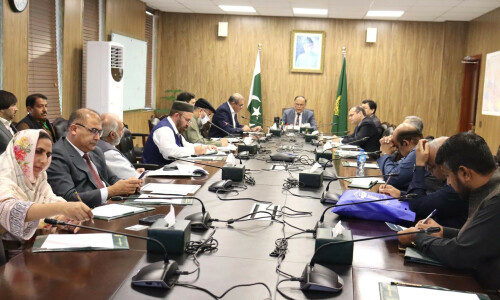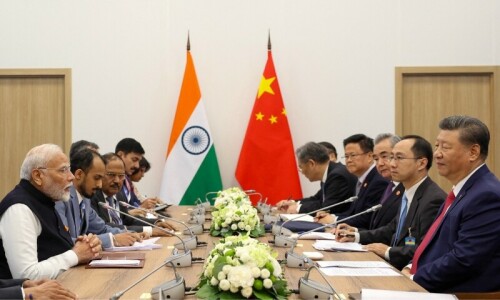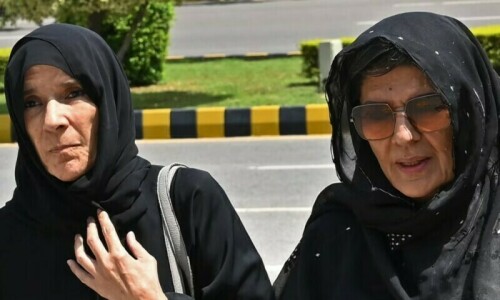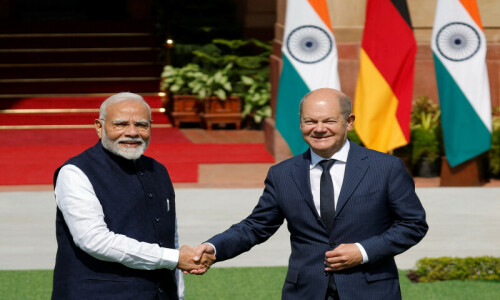UNITED NATIONS, July 12: Russia and China on Friday vetoed a resolution backed by the US and Britain in the UN Security Council to impose sanctions on Zimbabwe for holding a presidential election that was boycotted by the opposition candidate.
The resolution would have imposed an arms embargo on Zimbabwe and slapped financial and travel restrictions on President Robert Mugabe and 13 other officials, and called for the appointment of a UN’s special envoy for the African country.
Nine countries voted for the US-drafted text; five, including Russia and China, opposed it and one abstained in the 15-nation council.
The result marked a failure by the western bloc to persuade Russia and China into at least abstaining from the vote, owing to the gravity of the crisis in Zimbabwe.
It also sparked angry exchanges between the big powers. A seething British Ambassador Johan Sawers said: “The key thing is that the Russians (had) decided to vote against it”. “The assessment here is that China would not have vetoed it on its own because they have a range of conflicting interests at stake.”
Zalmay Khalilzad, the US ambassador to the United Nations, was particularly harsh in his remarks about Russia, saying that Moscow had supported a joint statement criticising the situation in Zimbabwe by the G-8 leaders at their meeting in Japan earlier this week. “The U-turn in the Russian position is particularly surprising and disturbing,” Mr Khalilzad said, adding it had raised questions about Moscow’s reliability as a partner.
Opponents of the resolution, which included South Africa, Libya and Vietnam, argued that Zimbabwe was not a threat to international peace and security — the qualification for eliciting the council action.
They said imposing sanctions over an election was interference in Zimbabwe’s internal affairs. They said that ongoing talks in South Africa between the country’s ruling and opposition parties should be given a chance.
Russian Ambassador Vitaly Churkin responded that the resolution was “an ever more obvious attempt to take the council beyond its charter prerogatives and beyond maintaining international peace and security. We believe such practices to be illegitimate and dangerous.”
Before the vote, Chinese Ambassador Wang Guangya told reporters that Beijing could not accept the language of the resolution and wanted dialogue between Zimbabwe’s parties, “so to adopt such a resolution at this time would not be helpful.”
Zimbabwe’s Ambassador Boniface Chidyausiku observed after the vote that the Security Council had refused to be “intimidated” by Britain, former colonial ruler of Zimbabwe, and the United States. “The United Nations has stuck to the Charter,” he said.
Voting for the resolution were the United States, Britain, France, Italy, Belgium, Croatia, Burkina Faso, Panama and Costa Rica. Indonesia abstained.













































Dear visitor, the comments section is undergoing an overhaul and will return soon.